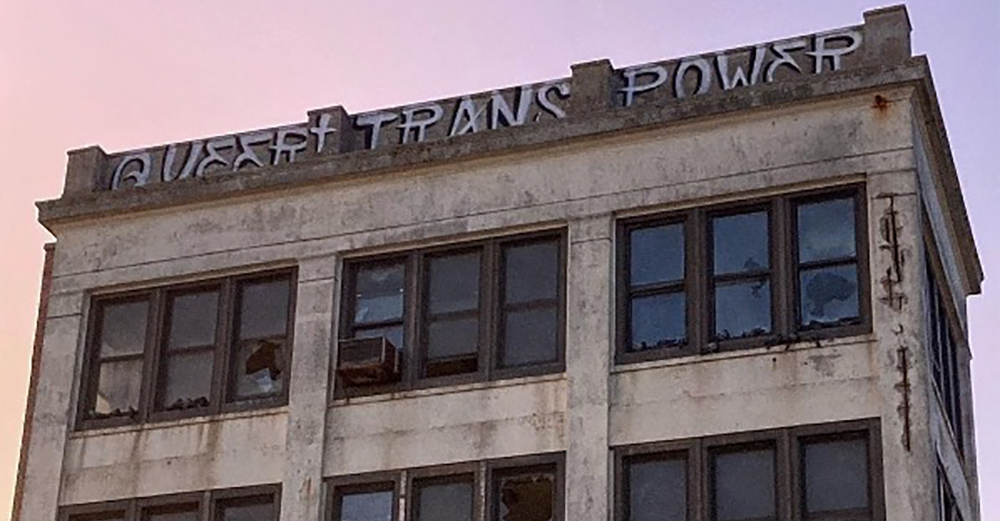Life After the Tipping Point: The Reality of Trans Legal Work
From the Journal of Jack Pellicano ’23 | Date: October 15, 2021

Old hospital at Jacob Riis Beach, captured by Chris Bernsten
Before applying to law school, I read Dean Spade’s Normal Life: Administrative Violence, Critical Trans Politics, and the Limits of Law. It was a helpful read to conceptualize what I already had experienced as a trans person living in New York City for the better part of a decade doing gig work without health insurance or the benefit of paid time off. When I was finally able to access those benefits, it meant 70–90-hour weeks in restaurant management in a toxic environment. I was privileged by my whiteness to turn that experience into an office management position that enabled me to use my benefits. However, that was a crushingly transphobic, racist, and sexist space. Neoliberal in attitude and politic, I was a spectacle, misgendered daily and expected to give trans 101 lessons to my colleagues, as is expected of most marginalized people in toxic workplaces.
Over the summer, I was able use my legal education to assist trans clients facing employment discrimination as a legal intern with Brooklyn Legal Services’ LGBTQ/HIV+ Advocacy Project using the precedent set in Bostock and the passing of the Gender Expression Non-Discrimination Act (“GENDA”) in New York. But anti-discrimination laws like GENDA and hate crime laws are not the origin story of the law’s categorization of trans people. This regulation has a long history given the violence the law perpetrates on trans people of color and disabled trans people. Unrepentant bills limiting the life chances of trans youth and grueling undertakings by trans women and femmes of color to repeal “Walking While Trans” law (two years after GENDA was passed) paint a more accurate picture of the effect of the law on trans people’s daily lives. In New York State it has become politically popular for those in power to support trans “rights” while staunchly maintaining the machinations of a system bent on limiting the survival of all marginalized people.
At many legal service providers, trans employees are faced with a dichotomy: being constantly misgendered by colleagues and the court, while representing other trans people in discrimination cases against their employers. I am fortunate to have worked with a supportive team at BLS, and to continue to work with them as a fall intern. And, as a white, trans-masc person I do not face nearly the same kind of state violence or threats of violence that trans women and femmes of color do. Often, this violence is perpetuated by the same state that acts as a gatekeeper of the slim life-giving resources needed by our clients. It is the same state that celebrates its “protection” of trans people as a class while being the most constant source of discriminatory violence.
While I find value in supporting clients pursuing monetary compensation from state violence they have faced, it is critical to understand that these anti-discrimination laws are an extension of the state. By individualizing discrimination, both of the actor and the target, we blame single people for a systemic issue that is created and maintained by the state.
It has to be asked what benefit does it serve to most trans people to sacrifice years of their lives to look for recourse for state violence from the state itself. It is hard to see these laws as more than an imperialist inclusion attempt that comes when collective power grows in a semi-cognizable group. It is a means to eradicate rebellion, especially of the poor and working class, and to pacify with rights the state itself takes away and only deigns to return when it deems appropriate. The law and its reforms are not meant, in formation or operation, to center the true needs of those most affected. Trans people need good and guaranteed housing, free and exceptional healthcare, and, more broadly, an end to capitalism, white supremacy, and patriarchy, under which survival will always be a struggle no matter how many anti anti-trans laws are created.
Jack Pellicano is a 2021 Sorensen Center Fellow. Funding for Jack’s Fellowship was provided by the New York City Council through the Sorensen Center’s partnership with LaGuardia and Wagner Archives.

